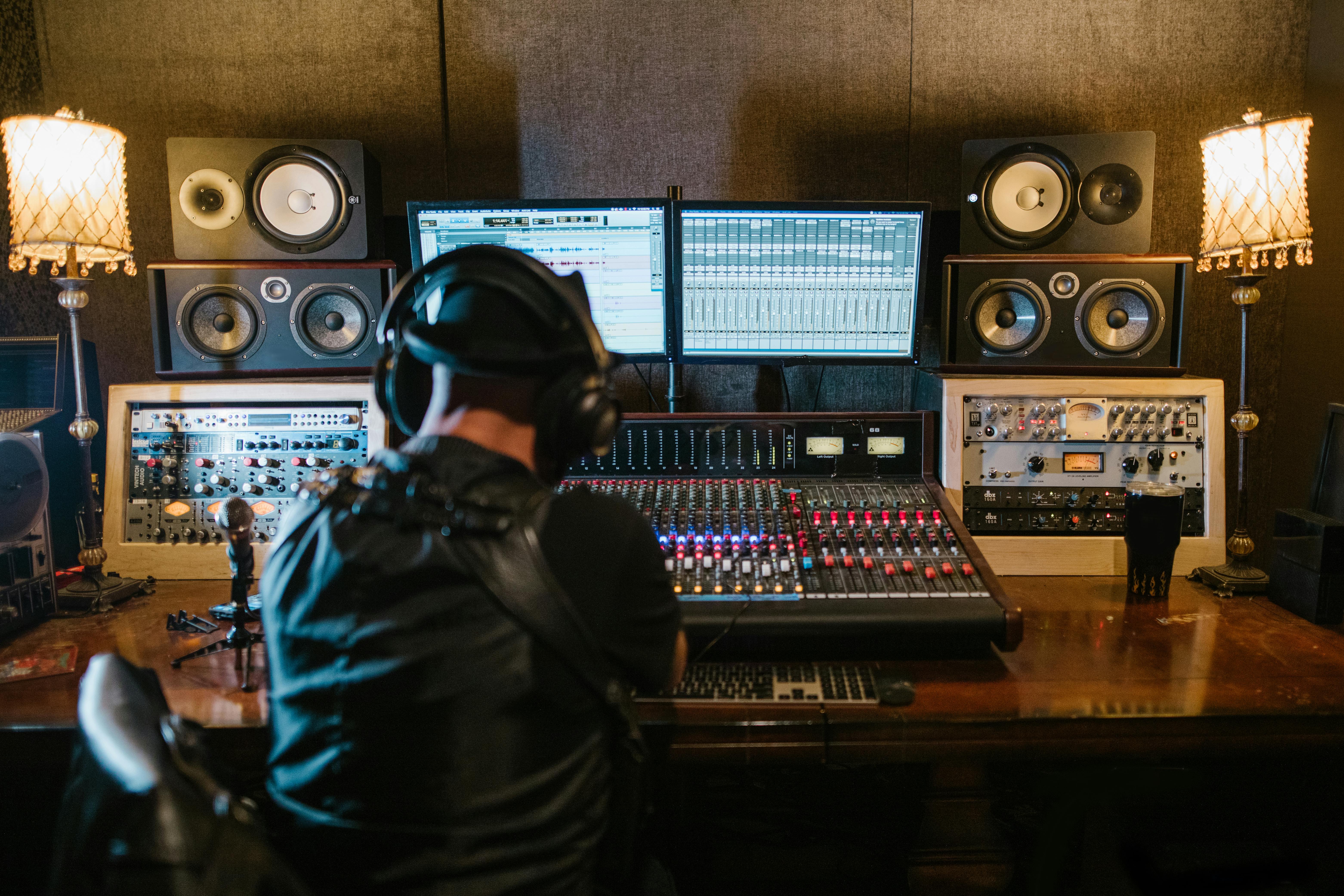Types of Jobs in the Music Industry
Jobs in the Music Industry
The music industry is a diverse and dynamic field. Offering a wide range of career opportunities for individuals with various skills and interests. Here is an overview of some of the key types of jobs available in the music industry:

Performance and Creation
- Musician/Artist
- Individuals who perform music, whether as solo acts, in bands, or as part of orchestras. They may create original music or perform existing works.
- Songwriter
- Professionals who compose music and write lyrics for songs. They may work independently or be contracted by artists or record labels.
- Composer
- Similar to songwriters, composers create original music. But they often focus on instrumental pieces or scores for films, television, and theater.
- Music Producer
- Producers oversee the recording process, helping artists shape the sound and style of their music. They may also handle technical aspects such as mixing and mastering.
Technical and Production
- Sound Engineer
- Experts in audio technology who manage the technical aspects of recording, mixing, and mastering music. They work in studios or at live events.
- Recording Technician
- Individuals responsible for setting up and operating recording equipment during sessions. They ensure high-quality sound capture.
- Live Sound Technician
- Professionals who manage sound quality at live performances, adjusting levels and troubleshooting technical issues.

Management and Business
- Music Manager
- Managers handle the business side of an artist’s career, including contract negotiations, booking gigs, and overseeing financial matters.
- A&R (Artists and Repertoire) Representative
- A&R reps scout for new talent. They help develop artists. A&R reps act as a liaison between the artist and the record label.
- Music Promoter
- Promoters organize and publicize concerts and events, working to increase attendance and revenue for performances.
Media and Marketing
- Music Journalist
- Writers who cover music news, review albums and concerts, and conduct interviews with artists for publications or websites.
- Publicist
- Publicists promote artists and manage their public image, coordinating media appearances and press releases.
- Social Media Manager
- Professionals who manage an artist’s online presence, engaging with fans and promoting music on platforms like Instagram, Twitter, and TikTok.
Education and Therapy
- Music Teacher/Educator
- Teachers provide instruction in music theory, performance, and composition to students of all ages, from schools to private lessons.
- Music Therapist
- Therapists use music to help individuals improve mental health and emotional well-being. They work in settings like hospitals, schools, or private practice.
Other Roles
- Music Licensing Specialist
- Specialists handle the legal aspects of music usage. They ensure that artists receive royalties. They also obtain proper permissions for music in media.
- Album Cover Designer
- Designers create the visual artwork for album covers, working closely with artists to reflect the music’s themes.
- Instrument Technician
- Technicians repair and maintain musical instruments, ensuring they are in optimal condition for performance and recording.
The music industry offers a plethora of opportunities for those with a passion for music. There is a place for you whether you are interested in being on stage. You can also find your fit behind the scenes or in the business side of things. Each role is integral to the success and vibrancy of the music world.
